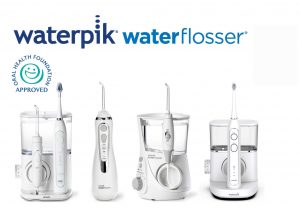Put dry mouth on the agenda
Featured Products Promotional FeaturesPosted by: Dental Design 20th May 2021

A patient’s reluctance to make an appointment for a ‘minor’ issue was something oral health practitioners were already pushing against pre-pandemic. In your practice, you would have worked hard to help people understand that toothache isn’t the only reason to see a dental professional. When people know the value of preventive care, of intercepting a problem before treatment is required, also how closely oral health is allied with general health and wellbeing, they won’t ever fear wasting your time.
Since the pandemic, the ‘Do I really need to see a dentist?’ question got harder to answer. Patient hesitancy can be challenged with good communication – for any problem, no matter how non-urgent they think it might be, they need to know that you are there to advise. Increased remote triaging has been a positive development here because it gives people the space to discuss ‘niggles’ without needing to come into the practice.
One example of something a patient might classify as ‘minor’, because it is irritating and uncomfortable rather than painful, is dry mouth. Dry mouth, or xerostomia, which presents more frequently – but not exclusively – in older patients, isn’t something anyone should have to ‘put up with’. Not only may you be able to offer simple solutions, but persistent dry mouth can have serious impacts if left unchecked.
A healthy salivary flow is a buffer against caries and erosion. Saliva rinses away food debris and is a ‘transporter’ for ions, including calcium, phosphate and fluoride, around the oral cavity.[i] These ions are essential to promote remineralisation, to prevent demineralisation and to help neutralise the pH.[ii] In a study to find any correlation between the pH of saliva and periodontal disease, the results indicated a ‘significant change in the pH depending on the severity of the periodontal condition… salivary pH may thus be used as a quick chairside diagnostic biomarker”.[iii]
Your patients are likely to be unaware of saliva’s biological potency, but they know that when their mouth is dry, as well as being uncomfortable, it can be hard to swallow or talk. The emotional impact of a persistent dry mouth cannot be underestimated, particularly for anyone who is already socially, or mentally vulnerable.[iv]
Certain medications can cause dry mouth. Antipsychotics and antidepressants can impede salivary flow, as well as drugs to manage epilepsy.[v] Prescribed medication should never be altered without consultation with other professionals involved in a patient’s care, so give them ways to find relief. These include taking sips of water throughout the day or sucking on a sugar-free ice-lolly. Dry mouth can also be a side effect of radio/chemotherapy treatment for cancer. If the cancer was in the head or neck, there may be damage to the salivary glands. These patients should try similar tips for relief, and you might consider ways to stimulate the functioning glands, as part of a tailored plan of post-cancer care.[vi]
A persistent dry mouth can be caused by a high-sugar, high-salt diet, also inadequate hydration. Are your patients aware of how much fluid they should be drinking every day? Fresh fruit and vegetables also have a high water content; a discussion of the components of a balanced diet that will support all-round good health should be part of your oral health consultations.
Alcohol is the enemy of hydration and waking up with a parched mouth is usually the first sign of a hangover. Moderating alcohol consumption is a fundamental public health message, ditto smoking cessation and for habitual smokers, a dry mouth will be a regular occurrence. Hay fever can also mean an uncomfortably dry mouth, especially when the person who suffers is mouth-breathing to counteract a blocked nose.[vii] It is a side-effect of some over-the-counter antihistamines, too. Again, checking hydration is often the key to feeling better until the symptoms pass.
 Whether patients are reporting a persistent dry mouth, or something that ails them now and again, once you’ve identified the cause(s), solutions and/or tips for symptomatic relief, look at how they can improve their oral health. Oral health is the foundation for effective preventive dentistry. As well as correct brushing, they could add a premium product like the Waterpik® Water Flosser to their routine, which is simple to use and will clean deep between the teeth and below the gumline – areas that traditional brushing and flossing cannot reach. Accredited by the Oral Health Foundation, there are different models and sizes available to suit most patients and help them maintain optimal mouth hygiene between appointments.
Whether patients are reporting a persistent dry mouth, or something that ails them now and again, once you’ve identified the cause(s), solutions and/or tips for symptomatic relief, look at how they can improve their oral health. Oral health is the foundation for effective preventive dentistry. As well as correct brushing, they could add a premium product like the Waterpik® Water Flosser to their routine, which is simple to use and will clean deep between the teeth and below the gumline – areas that traditional brushing and flossing cannot reach. Accredited by the Oral Health Foundation, there are different models and sizes available to suit most patients and help them maintain optimal mouth hygiene between appointments.
Encourage your patients to think beyond teeth, to get better value from your service. They should learn to be aware of how their mouth feels, any changes and bothersome symptoms. Full and frank patient conversations, which might intercept a problem before it becomes severe, will help us to raise standards of oral health.
For more information on Waterpik® products please visit www.waterpik.co.uk. Waterpik® products are available from Amazon, Asda, Costco UK, Argos, Boots, Superdrug online and in stores across the UK and Ireland.
Book a free Waterpik® professional Lunch and Learn for 1 hour of verifiable CPD and a free Waterpik® Water Flosser – available either face to face or as a webinar – at www.waterpik.co.uk/professional/lunch-learn/
Author
Maxwell O’Neill, professional educator for Waterpik
[i] Farooq I, Bugshan A. The role of salivary contents and modern technologies in the remineralization of dental enamel: a review. F1000Research. 2020; 9.
[ii] Farooq I, Bugshan A.
[iii] Baliga S, Muglikar S, Kale R. Salivary pH: A diagnostic biomarker. Journal of Indian Society of Periodontology. 2013 Jul; 17(4): 461.
[iv] Ship JA, Pillemer SR, Baum BJ. Xerostomia and the geriatric patient. Journal of the American Geriatrics Society. 2002 Mar; 50 (3): 535-43.
[v] NICE. Treatment summary. Treatment of dry mouth. Overview. Link: https://bnf.nice.org.uk/treatment-summary/treatment-of-dry-mouth.html (accessed January 2021).
[vi] Ship JA, Pillemer SR, Baum BJ.
[vii] NHS. Antihistamines. Link: https://www.nhs.uk/conditions/antihistamines/ (accessed January 2021).
No Comments
No comments yet.
Sorry, the comment form is closed at this time.



